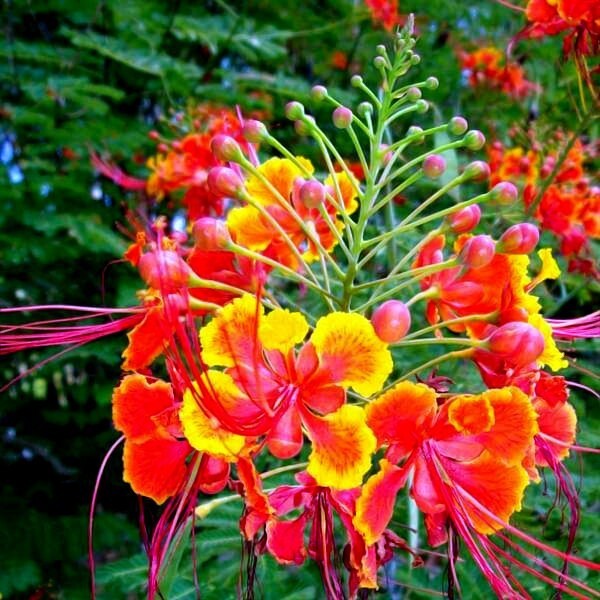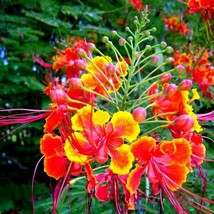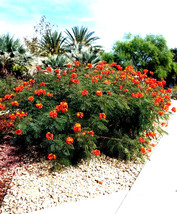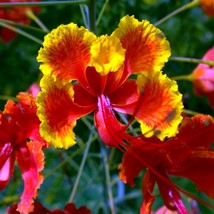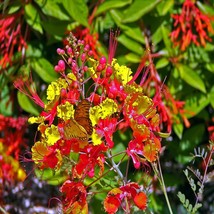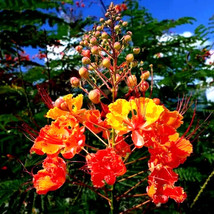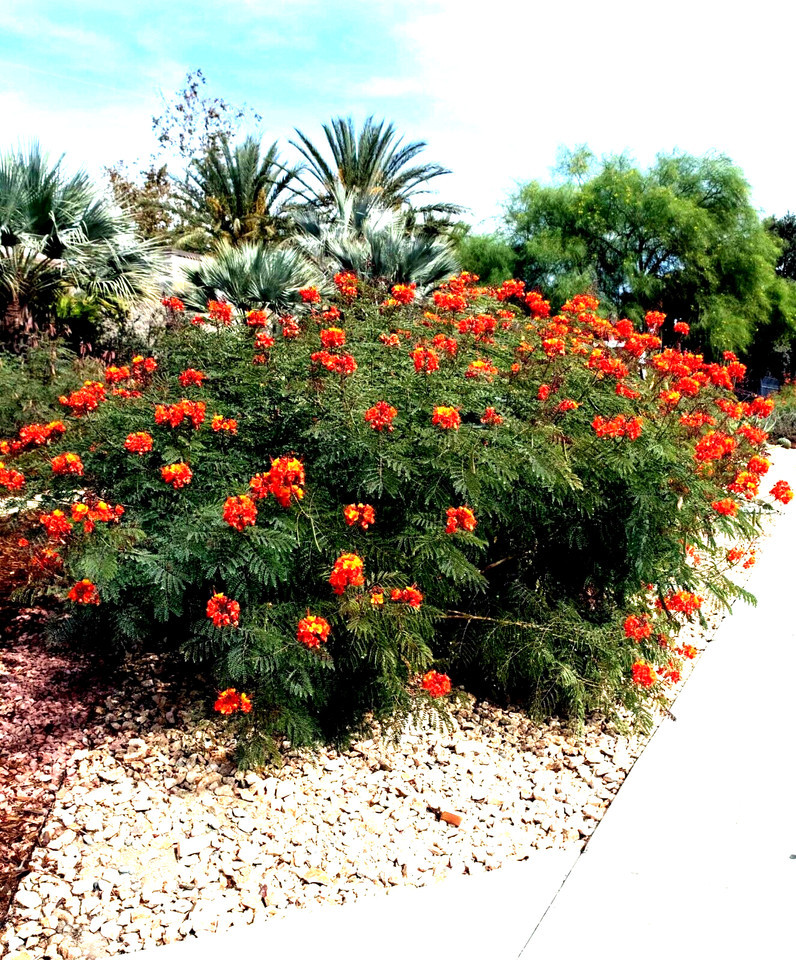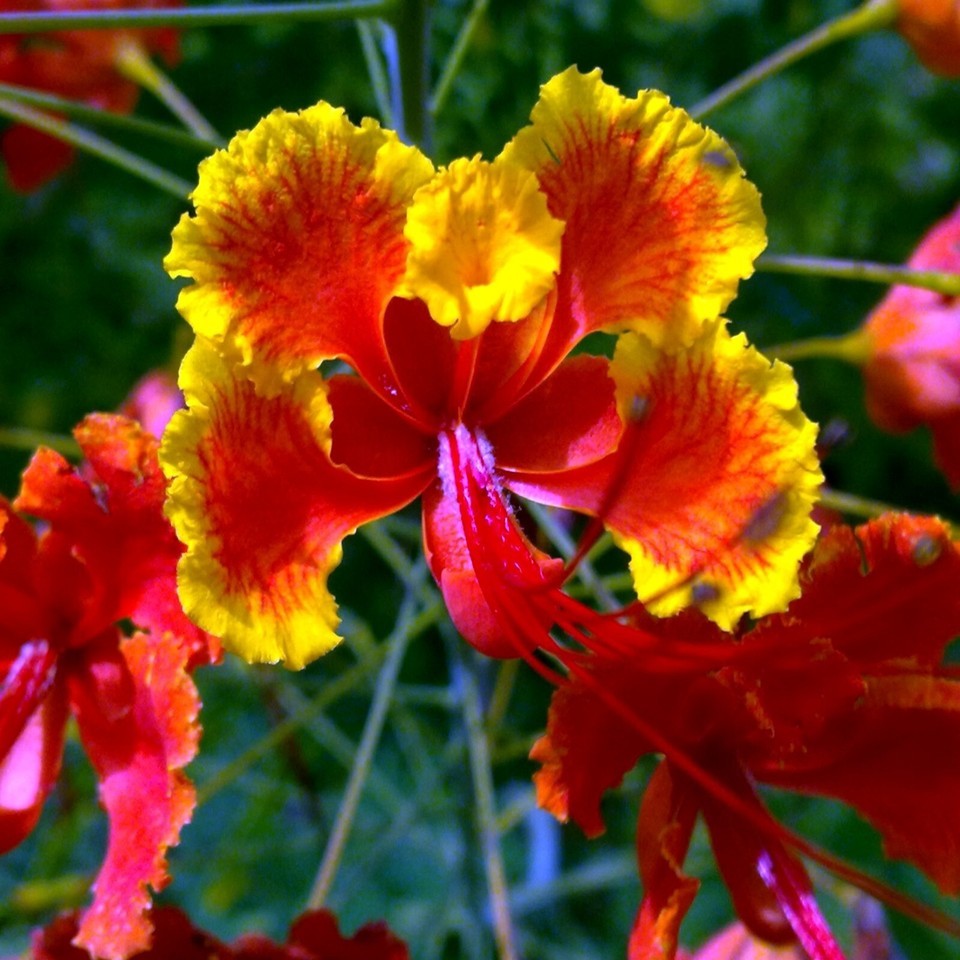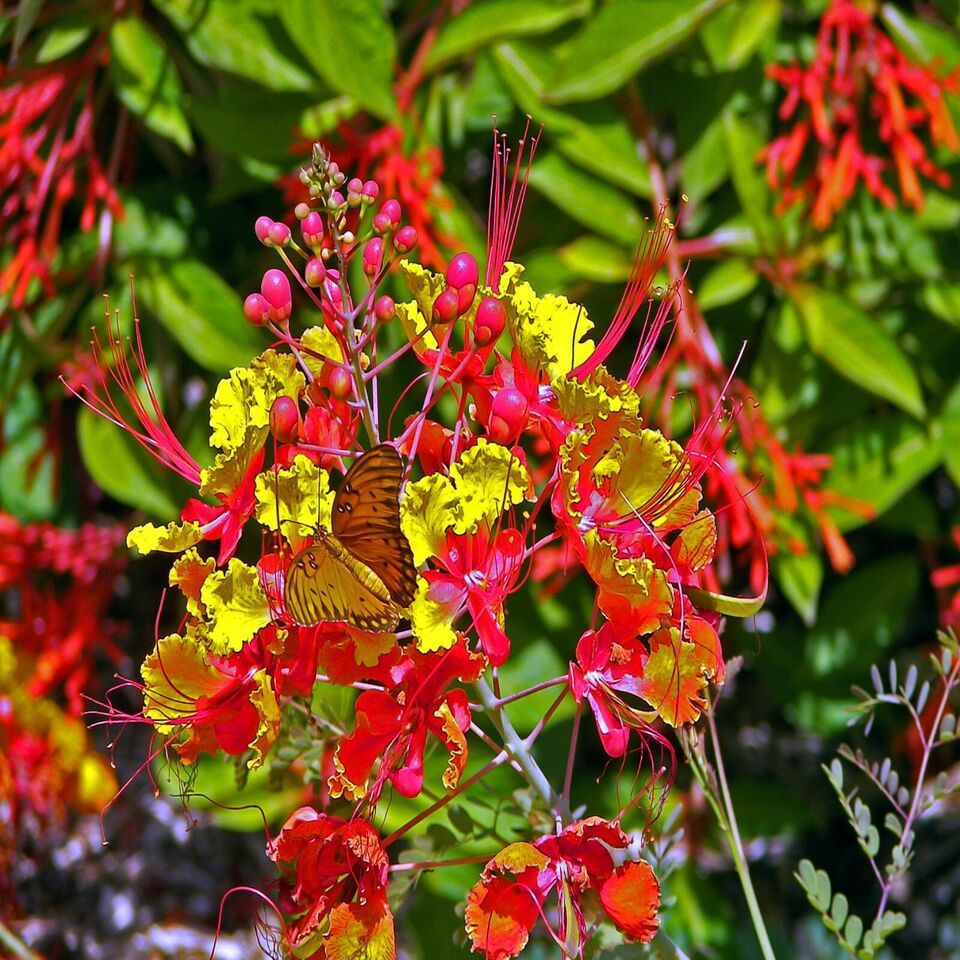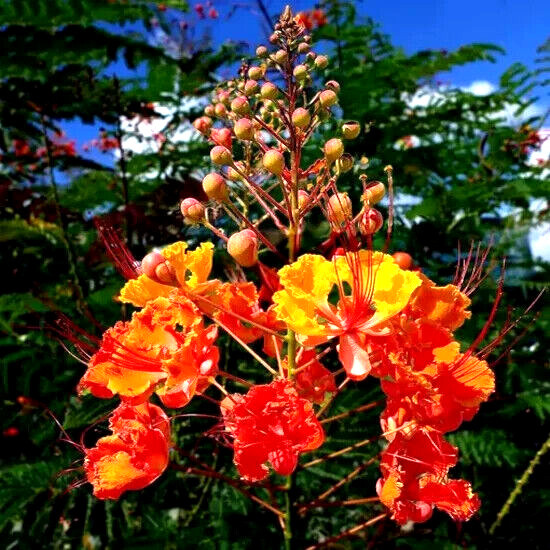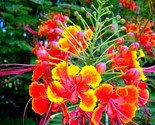Rendered at 04:02:57 07/21/25
5 MEXICAN RED BIRD of PARADISE SEEDS (C. Pulcherrima) DWARF POINCIANA Flower
$24.55 CAD
Ships from
Indonesia

Shipping options
No shipping price specified to CA
Ships from
Indonesia

Return policy
Purchase protection
Payment options
PayPal accepted
PayPal Credit accepted
Venmo accepted
PayPal, MasterCard, Visa, Discover, and American Express accepted
Maestro accepted
Amazon Pay accepted
Nuvei accepted
Shipping options
No shipping price specified to CA
Ships from
Indonesia

Return policy
Purchase protection
Payment options
PayPal accepted
PayPal Credit accepted
Venmo accepted
PayPal, MasterCard, Visa, Discover, and American Express accepted
Maestro accepted
Amazon Pay accepted
Nuvei accepted
Item traits
| Category: | |
|---|---|
| Quantity Available: |
10 in stock |
| Condition: |
New |
| UPC: |
656454017158 |
| Watering: |
Medium |
| Life Cycle: |
Perennial |
| Indoor/Outdoor: |
Outdoor |
| Cultivating Difficulty: |
Easy |
| Planting Time: |
2-8 Weeks |
| Growth Habit: |
Climbing & Clumping |
| Soil Type: |
Chalk, Loam, Sand, Silt, Must be Well Draining |
| Season of Interest: |
Fall, Spring, Summer |
| Type: |
Pride of Barbados, Red Bird of Paradise Flower Shrub Tree Seeds |
| Sunlight: |
Full Sun, Medium Sun, Partial Shade |
| Climate: | |
| Common Name: |
Red Bird of Paradise, Pride of Barbados |
| Soil pH: |
Acidic, Neutral, Alkaline |
| Genus: |
Caesalpinia |
| Features: |
Listing details
| Shipping discount: |
No combined shipping offered |
|---|---|
| Price discount: |
$4.11 CAD off w/ $100.00 spent |
| Posted for sale: |
July 11 |
| Item number: |
1759264117 |
Item description
RED BIRD of PARADISE SEEDS
(Caesalpinia Pulcherrima)
The Red Bird of Paradise Shrub puts off a Display of Brilliant Scarlet Red and Yellow Flowers, Feathery Green Foliage, and Quick Growth Make Dwarf Poinciana a Very Popular Evergreen Shrub that Definitely Turns Heads. It is Hard to Find a More Attractive Flower to Enhance the Landscaping. Also Known as The Pride of Barbados, this Open-Branched, Fine-Textured Shrub will Tolerate Hot, Dry Areas, and Forms an Effective Thorny Barrier. It Flowers Year-Round with Peak Displays in Spring and Fall. It is Originally from Mexico and the Caribbean and has Beautiful Showy Orange-Red Flowers, Fern-Like Leaves, and Prickles on it's Stems and Branches. It is the National Flower of Barbados. It May also be Known as Barbados Flower Fence, Barbados Pride, Dwarf Poinciana, Peacock Flower, and Red Bird of Paradise.
The Pride of Barbados is a deciduous shrub in zone 9 and perennial in zone 8. In the tropics, it may grow 15-20 feet tall and equally as wide. The flowers are clusters of orange-red blossoms with long red stamens. They blossom most of the year in the tropics. In climates where frost occurs, the flowers appear late summer and fall.
Hot humid weather and full sun ensure flowering. It is intolerant of poorly drained soils. Once it matures it tolerates some drought. During the growing season, they perform best if watered deeply but infrequently. Pruning may be needed to maintain its shape. It may be best to avoid planting this shrub near patios or walkways due to its prickly stems and branches. Used as a specimen, accent, or border, it would add beautiful color in a sunny, hot, and humid area. The flowers also attract hummingbirds and butterflies. They are considered deer resistant.
Zones 8b-11
Red Bird of Paradise Germination:
1) Use a piece of rough grit sand paper to sand the seeds to scarify.
2) Use a thermos to soak seeds in warm water for 48 hours, changing water daily.
3) Once the seeds start to swell, they are ready to plant.
4) Plant no more than 1/4" inch deep in well draining seed starting mix.
5) Use a heated propagator mat to keep soil at 80 degrees F, giving filtered light, but not direct sunlight.
6) Cover pots or treys with a piece of plastic to keep humidity levels high.
7) Expect germination anytime between 2-8 weeks, with some taking longer so never toss out any that do not sprout early.
Added to your wish list!
Get an item reminder
We'll email you a link to your item now and follow up with a single reminder (if you'd like one). That's it! No spam, no hassle.
Already have an account?
Log in and add this item to your wish list.


